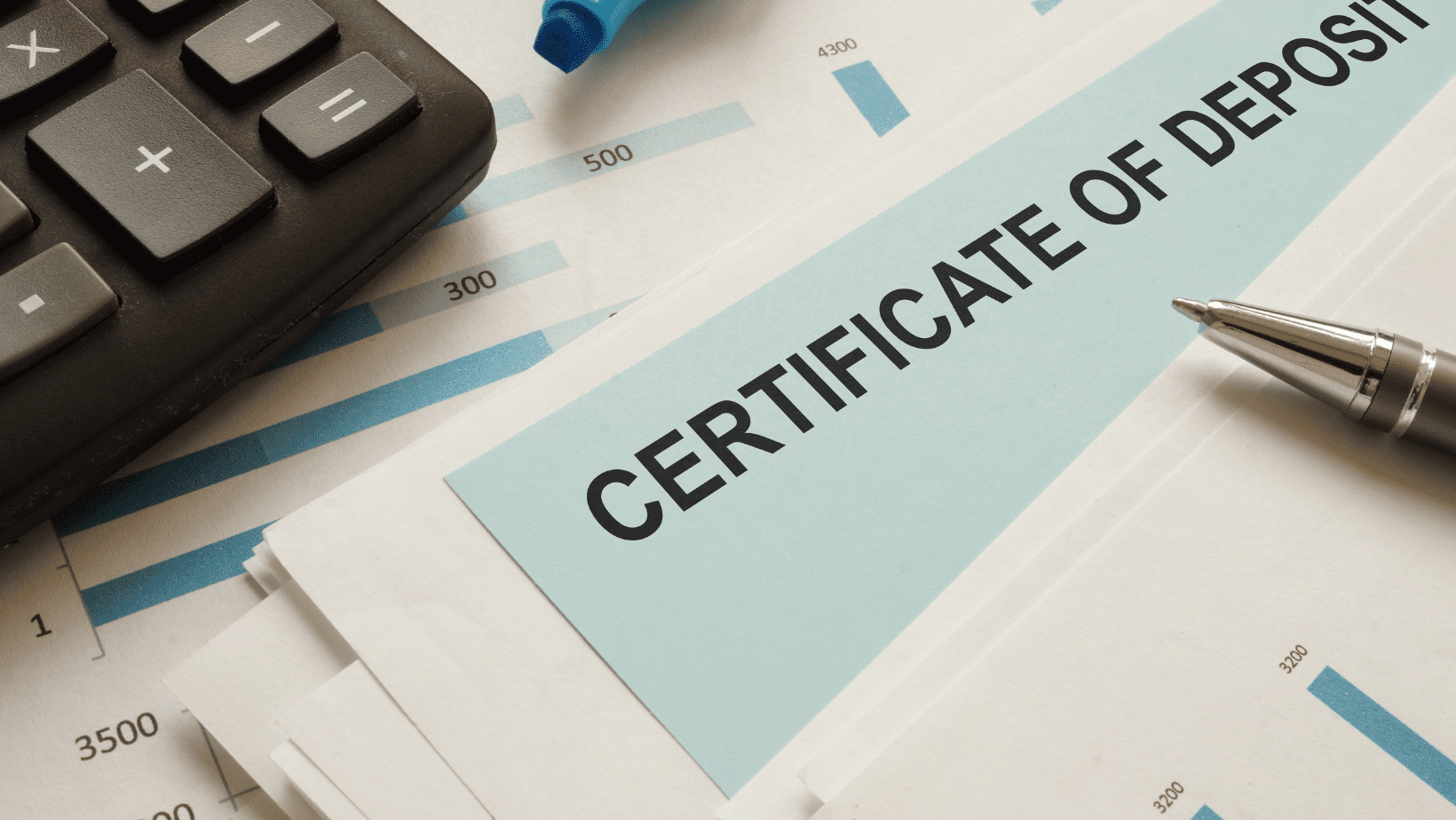
A certificate of deposit or share certificate can be a great way to earn a high interest rate, but both require patience.
The Basics
Certificates of Deposit (CDs) and share certificates are ways to earn more interest than you usually would in exchange for leaving your money in a financial institution. When you open either, you choose a length of time (often your options range from a few months to 10 or even 20 years). That length of time is associated with a set interest rate. The money that you deposit, and usually any previous interest gained, will earn that interest rate until the agreed-upon date. These interest rates are generally higher than those on a standard savings account.
While they have some subtle differences, CDs and share certificates are functionally the same. The main thing you need is that share certificates are available at credit unions and CDs are available at banks.
The interest rate plays a significant role in determining the earnings from a CD or share certificate—the higher the interest rate, the higher the earnings. It’s important to note that rates can change significantly from year to year (or even month to month). So just because you saw a rate earlier, doesn’t mean it will still be there later!
Cashing Out
When you reach the agreed-upon date for the end of the CD or share certificate, it “matures.” This means you’ve finished earning interest and can now withdraw the money or reinvest it. If you would like to take the cash out, you can ask the financial institution to move the money into a checking or savings account, transfer it to another financial institution, or send you a check. If you wait too long, the institution usually rolls over, or reinvests, your money into another CD or share certificate for the same amount of time you originally agreed on, but at whatever rate they’re currently offering.
You can withdraw the money before a CD or share certificate matures, but you’ll face penalties and fees. Sometimes those fees will completely wipe away any interest you would’ve earned. And if you haven’t earned that amount yet, it could take away from your principal, so withdrawing a CD early should only be done if absolutely necessary.
Compounding is Key
That interest actually earn on your CD or share certificate is the yield. Your yield is determined by the annual percentage yield (APY), or the interest rate on the CD or share certificate. The yield depends on whether the interest is simple or compound, and how often it’s compounded.
Simple interest is paid only on the principal you initially invested. Compound interest adds in the interest that has been earned. To compare the two, try entering different amounts into the tool below. Most often, CDs and share certificates earn compound interest.
When to get a CD or Share Certificate
CDs and share certificates are reliable savings options and earn competitive interest rates on their principal amount. Investing in one can be a good choice if you have money you won’t need for a while, but you are taking the risk that it won’t be available when you need it. If you’re unsure, you can look for a CD with a shorter commitment. This way, your money won’t be unavailable for as long.
While we hope you find this content useful, it is only intended to serve as a starting point. Your next step is to speak with a qualified, licensed professional who can provide advice tailored to your individual circumstances. Nothing in this article, nor in any associated resources, should be construed as financial or legal advice. Furthermore, while we have made good faith efforts to ensure that the information presented was correct as of the date the content was prepared, we are unable to guarantee that it remains accurate today.
Neither Banzai nor its sponsoring partners make any warranties or representations as to the accuracy, applicability, completeness, or suitability for any particular purpose of the information contained herein. Banzai and its sponsoring partners expressly disclaim any liability arising from the use or misuse of these materials and, by visiting this site, you agree to release Banzai and its sponsoring partners from any such liability. Do not rely upon the information provided in this content when making decisions regarding financial or legal matters without first consulting with a qualified, licensed professional.



![Envelope Budgeting [Cash vs. Digital]](https://b3271481.smushcdn.com/3271481/wp-content/uploads/2024/04/evenvelop-budgeting-1-500x383.png?lossy=2&strip=1&webp=1)